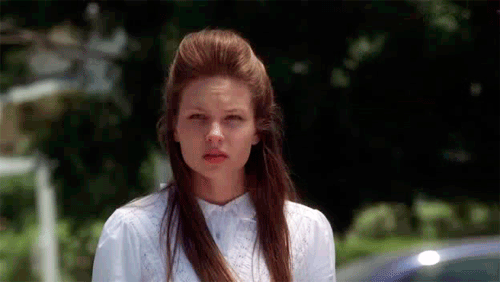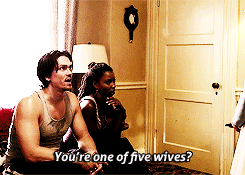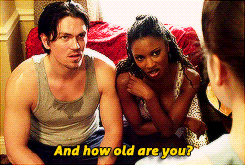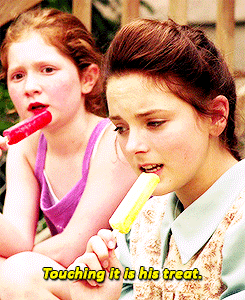Review


3 STARS
Wife Number Seven revolves around Brinley, a young woman who grew up inside a fundamentalist religious sect and is part of a polygamous relationship, based on polygyny, in which a man is allowed and encouraged to have more than one wife.
The book explores some of the elements that characterize religious polygynist communities: strict gender roles, the pressures that coerce woman into these kind of marriages, the role of the religious leader and the blind acceptance of his commands by the members of the sect and also different types of abuse that woman and children are often exposed in these communities.
It’s a controversial and intriguing subject, Polygyny is inherently unequal and denies women's fundamental rights. In this case, we have the perspective of a young woman who grew up in a sect, who only knows this reality and is the product of an upbringing in a context that doesn’t encourage women to think for themselves. Brinley is someone who grew up isolated from the outside world (believing that there isn't any good in the world outside her community) and who was pressured into marriage, influenced by this sect’s belief system.
This makes Brinley, a very unconventional heroine in the contemporary romance/NA genre. I think the way the author portrayed this reality is this novel’s greatest strength. It presents a straightforward, comprehensive approach to the life inside this kind of community, to the relationship dynamics between the sister-wives and to the MC inner conflict, it really shows a thorough research from the author’s part.
Brinley is keeping a big secret from her husband, something forbidden, that goes against the main role of the woman in her community for the 3 years that she’s been married, she’s been taking the pill in order to delay having children with her husband , so Brinley is presented as someone curious about the outside world, someone who questions the rules of her community and even contradicts them with her actions.
The book had a promising start, my issues with the story begin once she meets her love interest: Porter, an exile sect member. For such an original premise, the relationship between Porter and Brinley used some common tropes in the NA genre, I wouldn’t call it insta-love, or love at first sight, it's more like a sudden intense connection at first touch, literally.
They have two encounters and no meaningful conversation and after that, they have a physical contact which has a deep effect on both of them. When they meet after this moment, they suddenly share this intense connection. This felt forced and it was the first aspect that affected my interest in the romance between them.
My other issue with the romance is the male MC substance abuse.
Brinley and Porter first interaction occurs when he steals her bag because he needs money to feed his addiction. Maybe it’s just me but, I have a big problem equating romance in a situation like this. In this case, we are talking about a male MC who is a METH ADDICT. When we first meet him, he is STEALING TO FEED IS HABIT, this fact made it even more difficult for me to envision an auspicious progression to this romance.
Maybe the author’s intention was to make the male MC lifestyle contrast to the sect ideals but this is a superficial approach to meth addiction. Throughout the story, the issue surfaces as a way to bring more drama into the story - first the hero promises to get clean for the MC, he gets sober for 2 months,(because love, of course) but after that, he relapses and ultimately goes to rehab.
I felt that the inclusion and superficial treatment of this topic didn’t add value to the story and when it comes to an heavy subject like meth addiction, I appreciate a more in depth approach. This element, turned the romance between them even more unappealing to me.

The romance is a big part of the story and it is strongly connected with the female MC breakthrough. As Brinley and Porter’s relationship progresses, Brinley’s internal dialogue reinforces the fact that she’s changing, a transformation that she attributes to Porter’s presence in her life.
We have an MC that, from a young age, shows curiosity about the outside world and that acts against her community’s core beliefs and wants more for herself than a loveless marriage. But, even before Porter was in the picture, for 3 years, Brinley maintains regular contact with a cousin who left the same sect and built a life for herself. This cousin also encourages Brinley to leave the compound so, it was underwhelming to have Porter being identified has the main catalyst for her change and for her yearning for freedom.

I felt that the romance overshadows Brinley's character growth and that her "awakening" and motivation to change is mostly connected to her romance with Porter. I think the story could’ve had an inspirational quality if the MC's breakthrough wasn’t so attached to her relationship with the male MC, if the focus was more on a change for herself and in her growth as an individual.
Throughout the story, there were other aspects that, if explored with more depth, could’ve add more value to the story (e.g. Rebecca’s children storyline and the absence of their father, the children’s role in the sect).
While I recognize the interesting and innovative quality about this story (within the NA/CR genre), and also acknowledge the author’s effort in approaching this controversial subject, I was disappointed with the direction it took (concerning the development of the love story and the approach given to the heroine’s evolution).
This affected my enjoyment of this book and reflects the rating and my review. Despite that, the story is well written and entertaining so, if you’re curious, you should give it a try and see for yourself.
ARC provided by author in exchance for an honest review
Wife Number Seven revolves around Brinley, a young woman who grew up inside a fundamentalist religious sect and is part of a polygamous relationship, based on polygyny, in which a man is allowed and encouraged to have more than one wife.
The book explores some of the elements that characterize religious polygynist communities: strict gender roles, the pressures that coerce woman into these kind of marriages, the role of the religious leader and the blind acceptance of his commands by the members of the sect and also different types of abuse that woman and children are often exposed in these communities.
It’s a controversial and intriguing subject, Polygyny is inherently unequal and denies women's fundamental rights. In this case, we have the perspective of a young woman who grew up in a sect, who only knows this reality and is the product of an upbringing in a context that doesn’t encourage women to think for themselves. Brinley is someone who grew up isolated from the outside world (believing that there isn't any good in the world outside her community) and who was pressured into marriage, influenced by this sect’s belief system.
This makes Brinley, a very unconventional heroine in the contemporary romance/NA genre. I think the way the author portrayed this reality is this novel’s greatest strength. It presents a straightforward, comprehensive approach to the life inside this kind of community, to the relationship dynamics between the sister-wives and to the MC inner conflict, it really shows a thorough research from the author’s part.
A voice inside told me I didn’t belong here, that there was another life waiting for me. And with each passing year, that voice became louder.
Brinley is keeping a big secret from her husband, something forbidden, that goes against the main role of the woman in her community for the 3 years that she’s been married, she’s been taking the pill in order to delay having children with her husband , so Brinley is presented as someone curious about the outside world, someone who questions the rules of her community and even contradicts them with her actions.
The book had a promising start, my issues with the story begin once she meets her love interest: Porter, an exile sect member. For such an original premise, the relationship between Porter and Brinley used some common tropes in the NA genre, I wouldn’t call it insta-love, or love at first sight, it's more like a sudden intense connection at first touch, literally.
They have two encounters and no meaningful conversation and after that, they have a physical contact which has a deep effect on both of them. When they meet after this moment, they suddenly share this intense connection. This felt forced and it was the first aspect that affected my interest in the romance between them.
My other issue with the romance is the male MC substance abuse.
Brinley and Porter first interaction occurs when he steals her bag because he needs money to feed his addiction. Maybe it’s just me but, I have a big problem equating romance in a situation like this. In this case, we are talking about a male MC who is a METH ADDICT. When we first meet him, he is STEALING TO FEED IS HABIT, this fact made it even more difficult for me to envision an auspicious progression to this romance.
Maybe the author’s intention was to make the male MC lifestyle contrast to the sect ideals but this is a superficial approach to meth addiction. Throughout the story, the issue surfaces as a way to bring more drama into the story - first the hero promises to get clean for the MC, he gets sober for 2 months,(because love, of course) but after that, he relapses and ultimately goes to rehab.
I felt that the inclusion and superficial treatment of this topic didn’t add value to the story and when it comes to an heavy subject like meth addiction, I appreciate a more in depth approach. This element, turned the romance between them even more unappealing to me.

The romance is a big part of the story and it is strongly connected with the female MC breakthrough. As Brinley and Porter’s relationship progresses, Brinley’s internal dialogue reinforces the fact that she’s changing, a transformation that she attributes to Porter’s presence in her life.
I was changing. My thoughts, my desires, my ideals – all were altered by each contact I had with Porter. I was tired of resisting the effect he has having on me. I was tired of resisting felling like an actual person, rather than just a cog in a wheel.
We have an MC that, from a young age, shows curiosity about the outside world and that acts against her community’s core beliefs and wants more for herself than a loveless marriage. But, even before Porter was in the picture, for 3 years, Brinley maintains regular contact with a cousin who left the same sect and built a life for herself. This cousin also encourages Brinley to leave the compound so, it was underwhelming to have Porter being identified has the main catalyst for her change and for her yearning for freedom.

I felt that the romance overshadows Brinley's character growth and that her "awakening" and motivation to change is mostly connected to her romance with Porter. I think the story could’ve had an inspirational quality if the MC's breakthrough wasn’t so attached to her relationship with the male MC, if the focus was more on a change for herself and in her growth as an individual.
Throughout the story, there were other aspects that, if explored with more depth, could’ve add more value to the story (e.g. Rebecca’s children storyline and the absence of their father, the children’s role in the sect).
While I recognize the interesting and innovative quality about this story (within the NA/CR genre), and also acknowledge the author’s effort in approaching this controversial subject, I was disappointed with the direction it took (concerning the development of the love story and the approach given to the heroine’s evolution).
This affected my enjoyment of this book and reflects the rating and my review. Despite that, the story is well written and entertaining so, if you’re curious, you should give it a try and see for yourself.
ARC provided by author in exchance for an honest review































